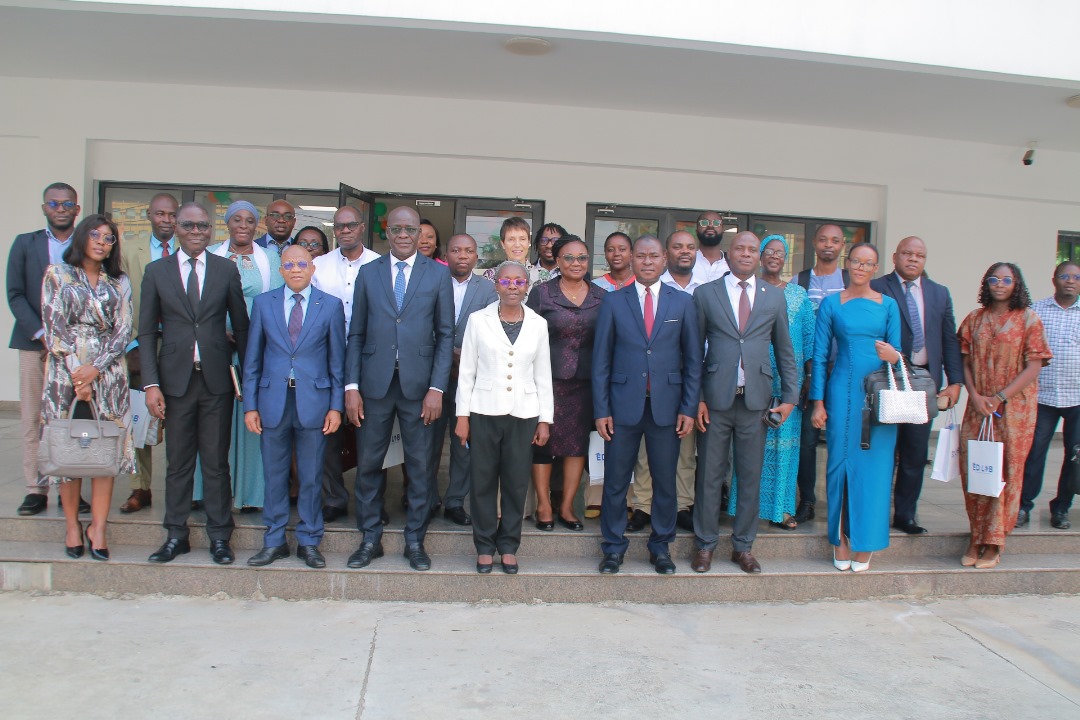IPA and Côte d’Ivoire Ministry of Education Launch an Embedded Evidence Lab

On July 2, 2024, the Department of Studies, Strategies, Planning, and Statistics (DESPS) at the Ministry of Education of Côte d’Ivoire, in partnership with IPA, launched an Embedded Evidence Lab to institutionalize data and evidence-based policymaking and implementation in the education sector. Embedded Evidence Labs are teams within government agencies, committed to improving the policymaking process through data and evidence. They achieve this by identifying the data and evidence needed to address policy challenges; developing and implementing strategies for generating relevant data and evidence; and applying the insights gained to improve policy decisions that impact people's lives.
Deputy Director of Cabinet at the Ministry of National Education Anastasie Sepou Kacou, Director of DESPS Inza Méité and representatives from IPA led by Marlène Kuadjovi ( Associate Director, Policy and Right-Fit Evidence), and other stakeholders from the Ivorian education ecosystem attended the launch ceremony. IPA’s partnership with the Ministry of Education of the Republic of Côte d'Ivoire was established in 2016. The partnership to co-create an Education Lab (Ed Lab) was formalized in March 2023 through a Memorandum of Understanding signing.
The Ed Lab will focus on designing and implementing a process that connects policy priorities with data, evidence, and decision-making, while also establishing a structure to manage this process. Additionally, to sustain and enable this process, the Ed Lab will carry out strategies to strengthen capacities, allocate resources, and secure political support for its sustainability. Through this strategy, the aim is to institutionalize a practice and culture of using data and evidence.
In her remarks, Marlène Kuadjovi reiterated IPA's commitment to continue working hand-in-hand with the government to institutionalize the culture of evidence-based decision-making. She also emphasized that the Ed Lab will be a place where decision-makers, researchers and practitioners can work together to improve the education system in Côte d’Ivoire.
Speaking on behalf of the Minister of National Education and Literacy, Deputy Director of Cabinet Anastasie Kacou expressed her gratitude for the introduction of the lab, which will facilitate evidence-based decision-making. She emphasized that to define and manage public policies effectively, decision-makers need to rely on high-quality data.
Inza Méité, Director of DESPS at the Ministry of Education also added that the Ed Lab is “an effective and efficient tool, less rigid, accessible to all and likely to provide decision-makers in the education sector with evidence for decision-making”. He explained that the lab model has been tested in several countries, including Ghana, Rwanda, Peru, and many other countries in which IPA operates. The Ed Lab is funded by the Jacob Foundation with technical support from IPA.
The Ed Lab at DESPS is structured around four major pillars: coordinating efforts around evidence generation, generating policy-relevant research, supporting activities that promote the use of evidence and supporting decision-making processes.
News and Media Coverage on the Ed Lab Launch (in French)
- La Côte d’Ivoire se dote d’un « Laboratoire pour l’éducation
- Côte d’Ivoire : Un outil révolutionnaire pour la prise de décision dans l’éducation dévoilé… des experts unanimes !
- Lancement du laboratoire pour l'éducation : la Côte d'Ivoire se dote de bases de données statistiques fiables et de qualité
- AIP/ La Côte d’Ivoire désormais dotée d’un ‘’Laboratoire pour l’éducation’’
- LifeTV: Le Grand Talk de 03 Juillet 2024












